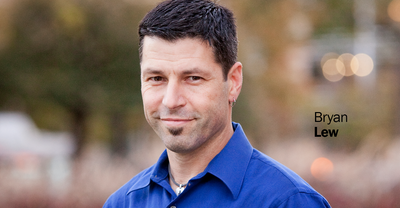The fair trade 4: Product for which certification makes a big differenceThe fair trade 4: Product for which certification makes a big difference
We have the Dirty Dozen list for produce with the highest amounts of pesticide residue. Now, here are the most important product categories to select fair trade goods.

From fair trade to organic and non-GMO, the number of product certifications on product packaging can overwhelm even the most educated shoppers and create confusion when making healthy, sustainable and responsible choices. When it comes to fair trade, specifically, a recent study showed that 76% of consumers would view brands more favorably if they carried a Fairtrade America mark. An independent sustainability certification, Fairtrade America enables farmers and workers to get a better deal by redressing the balance of trade.
Everyone engages with the global supply chain when purchasing everyday items including coffee, fresh produce and chocolate—all of which begin on a farm, usually in a developing country. Ethical brands can certify products with Fairtrade America to mitigate supply chain risks and adds credibility to social and environmental missions. And retailers can help savvy shoppers make a positive impact on the livelihood of small-scale farmers and their communities by promoting and educating about fair trade goods in the following categories.
The fair trade four
Bananas. The most popular fruit in the United States, bananas are grown by millions of small-scale farmers and plantation workers in tropical regions facing issues that threaten their livelihoods, including low wages, the severe impact of climate change and occupational hazards. Bananas carrying the Fairtrade America mark on their sticker have been produced by organizations or plantations that meet specified social, economic and environmental standards.
Coffee. The coffee industry is in crisis. Nearly 61% of producers sell their coffee at prices below the cost of production. This inequality jeopardizes the livelihoods of millions of small-scale growers around the world. Coffee traders, roasters and retailers must face the fact that not paying a fair price to farmers risks the future economic sustainability of the global coffee business. Fair trade coffee growers receive some protection from the crisis because they are paid a minimum price. Retailers can do their part to help by stocking and promoting fair trade certified products.
Chocolate. Child labor remains a serious concern in the cocoa supply chain. Low prices paid to producers in developing countries results in desperation to find cheap labor. Fairtrade America enforces the strictest economic, social and environmental criteria available of any fair trade certifier, including the most rigorous scrutiny on child labor. When companies use fair trade ingredients, small-scale farmers are better able to achieve dignified livelihoods that don’t force them to resort to exploitative child labor.
Cotton. A $3 T-shirt costs more than meets the eye because of environmental pollution and slavery used to produce clothing at such a low cost. Retailers should stock pieces made with fair trade certified cotton to ensure farmers are paid a fair price that enables them to invest in their communities and protect their local environment.
Beyond taste, quality and price, brands can increasingly differentiate themselves by appealing to consumers’ ethical concerns, including secured living wages for small-scale farmers; limited environmental impact; gender equality and the absence of child labor—integral parts of Fairtrade America certification.
Bryan Lew is the chief operating officer for Fairtrade America, where he leads the effort to expand awareness of Fairtrade America’s mission among U.S. businesses and consumers. Bryan brings expertise in the natural foods industry from his previous roles leading operations for Sur la Table and MOM’s Organic Market. Lew was also an executive vice president at Whole Foods Market.
Have some big ideas or thoughts to share related to the natural products industry? We’d love to hear and publish your opinions in the newhope.com IdeaXchange. Check out our submission guidelines.
About the Author
You May Also Like





